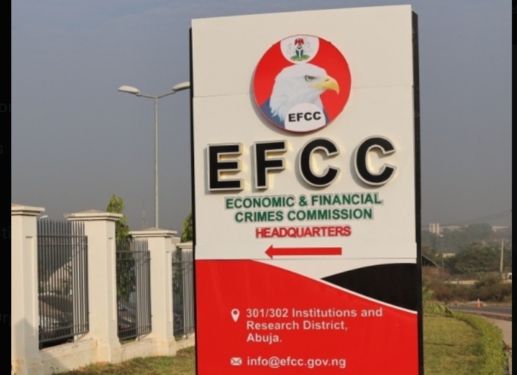Isaac Samuel
The Economic and Financial Crimes Commission (EFCC) has faulted the National Assembly for failing to forward audit and oversight reports on Ministries, Departments and Agencies (MDAs) to the Commission for enforcement actions.
EFCC Chairman, Ola Olukoyede, made the accusation yesterday at the National Conference on Public Accounts and Fiscal Governance in Abuja.
Represented by the Director of Public Affairs, Wilson Uwujaren, Olukoyede said no single report from the Public Accounts Committees of the Senate or House of Representatives has ever been transmitted to the anti-graft agency for necessary investigation.
He warned that such lapses erode institutional accountability and encourage impunity in the public sector, urging the National Assembly to set the tone for fiscal integrity
He urged the National Assembly to lead by example.
His words: “Parliament cannot demand accountability if it doesn’t practice it. Fiscal integrity must be the norm in all organs of government. Legislators must embrace transparent appropriation and resist any actions that erode public trust.
“There is also a need for greater synergy and collaboration between the Public Accounts Committee of the National Assembly and the EFCC. To the best of my knowledge, no report of the Committee’s oversight of MDAs has been forwarded to the EFCC for investigation. Leveraging the enforcement powers of the Commission will send a powerful message that the Public Accounts Committee’s work is not routine or toothless”.
The EFCC boss raised alarm over persistent opacity in Nigeria’s financial reporting system, particularly within the oil and gas sector, warning that the lack of transparency continues to undermine national development and public trust.
Olukoyede said that speculative earnings, unverified transactions, and poor oversight in critical sectors like oil and gas have entrenched inefficiency and corruption in public finance.
According to him, several loopholes that continue to threaten Nigeria’s fiscal integrity include non-compliance with financial regulations, approval of spending beyond official limits, diversion of public funds to private accounts, and the padding of budgets to accommodate projects with no real developmental value.
He also cited digital manipulation of government platforms such as the Government Integrated Financial Management Information System (GIFMIS) and the Integrated Payroll and Personnel Information System (IPPIS), which have become tools for payroll fraud in some Ministries, Departments and Agencies (MDAs).
Olukoyede lamented that despite years of reforms and development plans, the gap between policy intent and public impact remains wide, adding that “we must move from paper reforms to institutional enforcement.”
He revealed that in the past 18 months, the agency has taken strategic steps to strengthen internal controls across the public sector.
Key among these efforts according to him is the creation of a Fraud Risk Assessment and Control Department, tasked with identifying and sealing off fiscal loopholes in MDAs.
On asset recovery, Olukoyede disclosed that the EFCC has returned trillions of naira in monetary assets to the national treasury, including what he described as the largest real estate asset recovery in Nigeria’s history which was the 750 duplexes seized in Abuja.
Funds recovered from various corruption cases, he noted, have been redirected into key national initiatives such as the Nigerian Education Loan Fund (NELFund) and the Consumer Credit Scheme (CREDICORP).
The EFCC, he said, is also working with the Federal Ministry of Housing to convert seized properties into affordable housing for low-income Nigerians.





